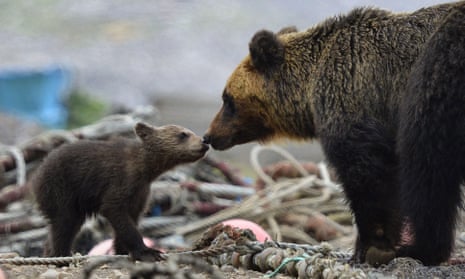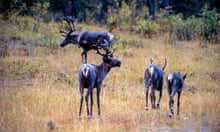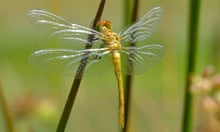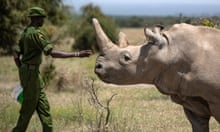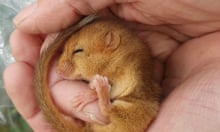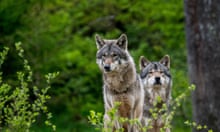As many as eight in 10 brown bear cubs born this year in a remote part of northern Japan have died amid a shortage of salmon, with experts blaming rising sea temperatures caused by the climate crisis.
Along with acorns, pink salmon are an important source of food for the estimated 500 brown bears living along Hokkaido’s Shiretoko peninsula, a Unesco world heritage site known for its dramatic coastline and wild animals.
Local officials reacted with alarm after a tour boat operator spotted a starving bear cub desperately searching for food on the peninsula’s eastern coast this month. The bear was reportedly turning over rocks and rummaging through piles of beached seaweed in search of food.
Pink salmon that hatch in rivers in Hokkaido spend the winter in the sea, before returning to streams in Shiretoko between August and October to lay eggs. Brown bears typically lie in wait for the salmon as they make their way upstream, but have been forced to swim in the sea because of the shortage of river fish.
“Some bears have grown really thin,” Katsuya Noda, the tour boat operator, told the Asahi Shimbun. “They are having a tough time, because there are no fish in the rivers, just like last year.”
Experts said sea surface temperatures off Hokkaido remained above 20C from mid-July to early August 2021, 5C higher than average for that time of the year.
Researchers at Hokkaido University have warned that if global heating continues at its current rate, seawater temperature around the island will rise by up to 10C in the 2090s compared with 1980s levels.
Masami Yamanaka, a researcher at the Shiretoko Nature Foundation, told the Asahi that the lack of salmon, combined with a poor acorn harvest, was having a devastating effect on brown bear cubs. “An estimated 70% to 80% of the cubs born this year are dead,” Yamanaka said. “It’s a really serious situation.”
Fishers caught 482,775 pink salmon in rivers in Hokkaido, Japan’s northernmost main island, between 25 July and 5 September in 2020, but only 23,298 last year, according to the Hokkaido Salmon Propagation Association. Given statistical evidence showing that good catches occur every other year, the 2022 haul was surprisingly small.
The scarcity of acorns has been blamed for a rise in the number of bear attacks on humans in Hokkaido and other parts of northern Japan, as they venture into populated areas in search of food.
A total of 1,056 brown bears were caught and killed in Hokkaido in the year up to April 2022 – the highest figure on record and the first time the number has exceeded 1,000, according to the prefecture’s government. Of the total, 999 brown bears were exterminated to prevent damage to crops or because they were considered a danger to local people.
The number of people injured or killed in incidents involving bears was 14 in the same period, with crop damage estimated at ¥262m (£1.44m) – both the highest figures on record.
